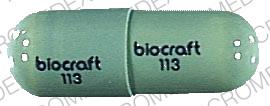Cephradine Interactions
There are 68 drugs known to interact with cephradine, along with 3 disease interactions, and 1 alcohol/food interaction. Of the total drug interactions, 6 are major, and 62 are moderate.
- View all 68 medications that may interact with cephradine
- View cephradine alcohol/food interactions (1)
- View cephradine disease interactions (3)
Most frequently checked interactions
View interaction reports for cephradine and the medicines listed below.
- Acetylsalicylic Acid (aspirin)
- Adrenalin (epinephrine)
- Ativan (lorazepam)
- Atrovent (ipratropium)
- Augmentin (amoxicillin / clavulanate)
- Baricon (barium sulfate)
- Chlorphen (chlorpheniramine)
- Chlorpheniramine (Allergy) (chlorpheniramine)
- Cipro (ciprofloxacin)
- Combivent (albuterol / ipratropium)
- Cozaar (losartan)
- Dexamethasone Intensol (dexamethasone)
- Dextran 40 (dextran, low molecular weight)
- Dextran 70 6% in 0.9% Sodium Chloride (dextran, high molecular weight)
- Elavil (amitriptyline)
- Epogen (epoetin alfa)
- Ginkgo Biloba (ginkgo)
- GlipiZIDE XL (glipizide)
- Glycerol (glycerin)
- Levoxyl (levothyroxine)
- Paracetamol (acetaminophen)
- Septra DS (sulfamethoxazole / trimethoprim)
- Valproate Sodium (valproic acid)
- Vitamin A, D (multivitamin)
- Vitamin B1 (thiamine)
- Vitamin B12 (cyanocobalamin)
- Vitamin B6 (pyridoxine)
- Vitamin C (ascorbic acid)
- Vitamin D3 (cholecalciferol)
- Vitamin K1 (phytonadione)
Cephradine alcohol/food interactions
There is 1 alcohol/food interaction with cephradine.
Cephradine disease interactions
There are 3 disease interactions with cephradine which include:
More about cephradine
- Compare alternatives
- Drug images
- Side effects
- Dosage information
- During pregnancy
- Drug class: first generation cephalosporins
- Breastfeeding
Related treatment guides
Drug Interaction Classification
| Highly clinically significant. Avoid combinations; the risk of the interaction outweighs the benefit. | |
| Moderately clinically significant. Usually avoid combinations; use it only under special circumstances. | |
| Minimally clinically significant. Minimize risk; assess risk and consider an alternative drug, take steps to circumvent the interaction risk and/or institute a monitoring plan. | |
| No interaction information available. |
See also:
Further information
Always consult your healthcare provider to ensure the information displayed on this page applies to your personal circumstances.


